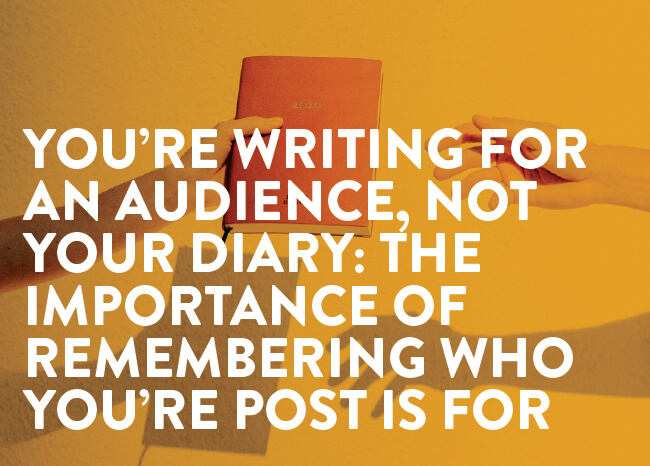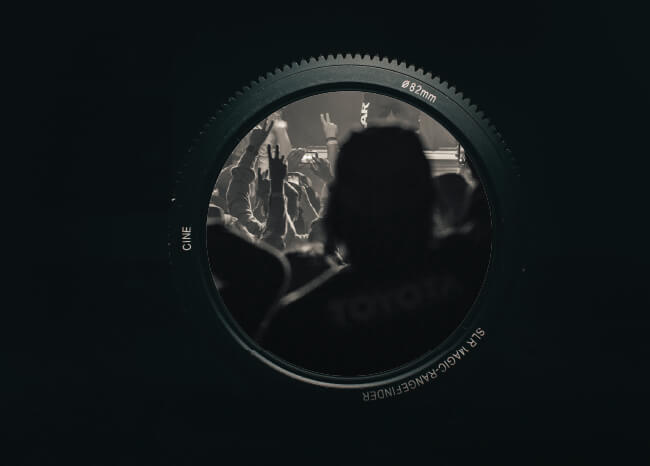
I am the first to admit that I have a strong attachment to anything I create — especially my writing. I treat each piece like my little darling. To me, every word I include has its purpose. To me, it’s perfect as is. When in all actuality, it is everything but. It’s like an old communications professor of mine once said, sometimes you need to “kill your darlings.” Morbid? Yes; but let me explain.
It can be easy to include words and/or phrases (aka your “darlings”) that you feel are necessary when they’re not. Even if you believe that every word serves a purpose, chances are the article will be better off without them — which is why you need to kill your darlings.
By this, my professor meant to comb through an article and remove any word and/or phrase that didn’t serve as much of a purpose as you originally thought it would. Although it’s a (rather strange) saying, I use it not only when I edit, but also to determine whether an article should be killed off entirely.
This is a saying that I think all content creators should keep in mind. It’s especially pertinent when you’re wondering why your organic search traffic may not be as high as you originally projected or why your click-through rates (CTR) are low.
If you’ve published content only because you like it — despite it lacking any true value for your target audience — then it has to go. Remember, you should be writing for them, not your diary.
Remembering Who Your Audience Is

By the time you are developing a content strategy for your site, you should have already established your target audience. But establishing your target audience isn’t enough on its own. You must also always remember who your target audience is.
While this may seem like common sense, you’d be surprised at the number of websites I’ve seen with blog posts that are irrelevant to the site’s niche, or which offer no clear value to readers. As a user, I find it kind of awkward, honestly. I’m there for answers, not to read a diary entry. Same with your audience.
Remembering your audience is crucial. Not just for the sake of your business, but the sake of your website’s SEO. It’s also important because it:
- Keeps their attention on your website, saving your audience from having to look elsewhere for additional answers;
- Improves overall user experience;
- Allows your audience to view you as an authoritative source/expert in your field.
Your audience doesn’t want to read content that doesn’t pertain to them. Just like how you don’t want to read content that doesn’t pertain to you. It’s that simple.
Remembering What Your Audience Needs

“But Alex, how do you know what content doesn’t interest them?” Let me tell you. First, you’ll need to go through every single article already published on your website. Ask yourself, “Does this article cater to my interests and goals, or my audience’s interests and goals?” If it doesn’t cater to your audience, then you should “kill your darling” and either remove the article entirely or optimize it so that it’s relevant and helpful.
It is your duty to research what your audience is searching for. Look through the eyes of your audience. If you were scrolling through your website as a user, what type of content would you want to see? What pain points are associated with your industry that you should talk about, but haven’t yet? If you feel as if your site is lacking in any area then you need to fix it.
As a content creator, it is your responsibility to research what your competitors are covering. It is also your responsibility to try and answer any questions your audience may have — and answer them quickly, yet precisely. You can even hire professionals to do an analysis of your website to see what type of content your site (or your site’s audience) needs, such as linkable or keyword-focused content. Hiring a professional is helpful because it not only helps boost overall user experience, but it also helps boost your site’s SEO.
Remember, covering basic topics associated with your industry is just one part of content creation. Your site must also be accurate, mobile-optimized, easy to navigate, relevant, and always focused on the user’s experience. Always.
Creating Content for Your Audience, Not Your Conversions

I’ve said it before and I’ll say it again: it’s important to know why you’re creating content. You’re not creating it for you. You’re not always creating it for your conversions. When it comes to SEO, you’re creating for your audience.
I get that it can sometimes be difficult finding what to write about, especially when you’re trying to remember the whole “kill your darlings” mentality while also staying true to technical SEO best practices.
Remembering your audience entails knowing what resources readers and writers need, and providing original research or compelling insights they can’t get elsewhere, incentivizing them to link to you. Link building requires you to give them something they need — not just aiming for clicks.
However, hiring professional help may not always be an option. So if you’re the DIY type of person, then the advice below may just be what you need.
Use Your Strengths to Your Advantage
Your audience wants to view you as an expert in your field, so be one. Take all of the information you have learned while being in your industry and write about it. Start by creating definitional pages on common keywords and phrases used throughout your line of work. Just because you’re already familiar with them, doesn’t mean your audience will be.
Use any certifications, licenses, and training to your advantage to help generate content that could answer all of the questions your audience may ask. If your audience is seeking additional answers elsewhere, then you didn’t do your content-creating job to the best of your ability. You will want to be sure to answer any questions that may arise and have them easily accessible.
Don’t hide the information deep within your website. Make a separate tab dedicated to your blog and put it front and center. If your audience is anything like me, they will start by clicking one post, and then another, and another — improving the amount of time your audience spends on your site. Which, say it with me now, “Also affects your overall SEO.” Good. Moving on.
Don’t Be Afraid to Get Emotional With It

I don’t mean emotional in the sense of making your audience cry. Rather, I mean to reach back into your writing repertoire and start integrating pathos into some of your content.
Don’t think like a typical marketer. Marketers will begin to wonder what’s in it for them or, “What can I get out of this?” This fails to meet the mark in terms of content creation and user-friendliness; instead, they should be asking, “How can I give visitors what they want?”
Even if your goal is to get people to add an item to their shopping cart or provide their contact information, you must still focus on sharing information, insights, resources, guides, and other helpful, user-centric content. Remember, your searchers are looking for information — they want to feel something. They want to scroll through your website and see that you truly care about their queries, not just the sale.
Edit Through the Eyes of Your Audience

Remember, you don’t always have to kill off articles that aren’t doing much for your audience. Some just need a little tough love. By this I mean you just need to update old content and implement more basic optimization practices. I’m sure you already know the importance of having an error-free article. But this goes beyond having an article free of spelling and grammatical errors. You should also be mindful of:
- Evergreen content: You may have content that is no longer relevant, accurate, or isn’t as “fresh” as the topic warrants. These pages will need to be updated, or if the topic is no longer searched/irrelevant to your audience, then you should cut it completely.
- Keyword optimization vs. keyword stuffing: Take a look at the keywords that a page is ranking for. Are they relevant to the query? Are they the best words to include in that post? Are you using them naturally and speaking like a human, or repeating them with an eye-to-keyword density and matching target search phrases? Do you sound like a robot, or like someone with answers?
- Page loading speeds: Page speed is a direct ranking factor. Therefore, if your page is taking forever to load, chances are there are a few performance issues — like error or redirect codes — on your site that need to be fixed. Also, it isn’t just a ranking factor, it’s an experience factor. Slow pages lead to impatience, lost trust, and diminished engagement. You could have the best article in the world, but it won’t be appealing if your audience has to wait too long to see it.
- Proper use of internal and external links: Don’t be afraid to revisit old pages and add more internal/external links — especially if the information has changed over time. Also, make sure the links that are already included are still working. Look for error codes, redirects, etc., and change them when necessary.
All of the above are important for user experience and, you guessed it, your site’s SEO. It’s also important to point out that you shouldn’t optimize previously published articles solely for the sake of improving your site’s SEO.
Optimize old articles for the sake of having good, quality content. Can you imagine stumbling upon a website that has poorly written articles riddled with grammatical and/or spelling errors? It’s a major turnoff. Do yourself and your website a favor — remember who your audience is and don’t forget to kill your darlings.

